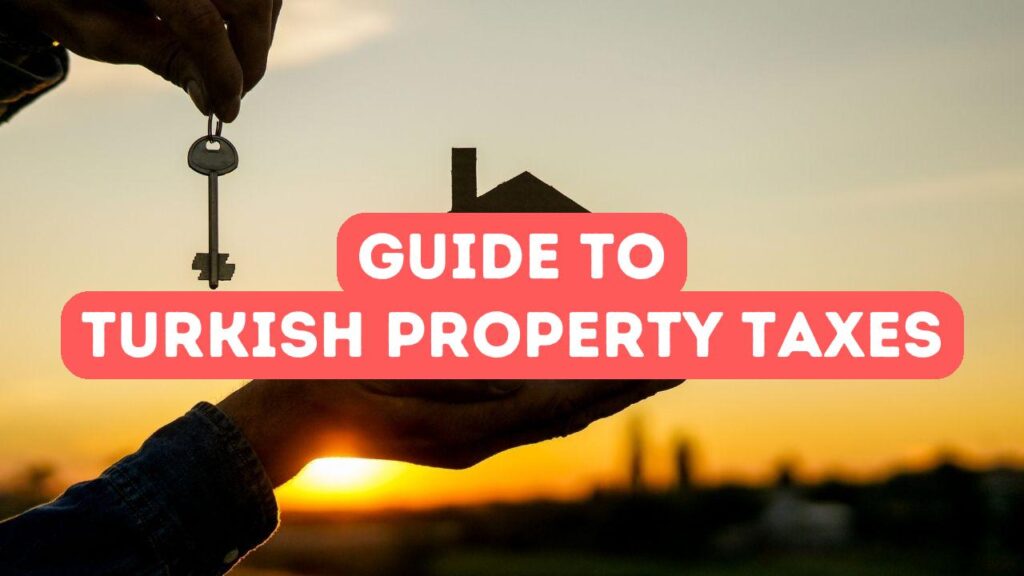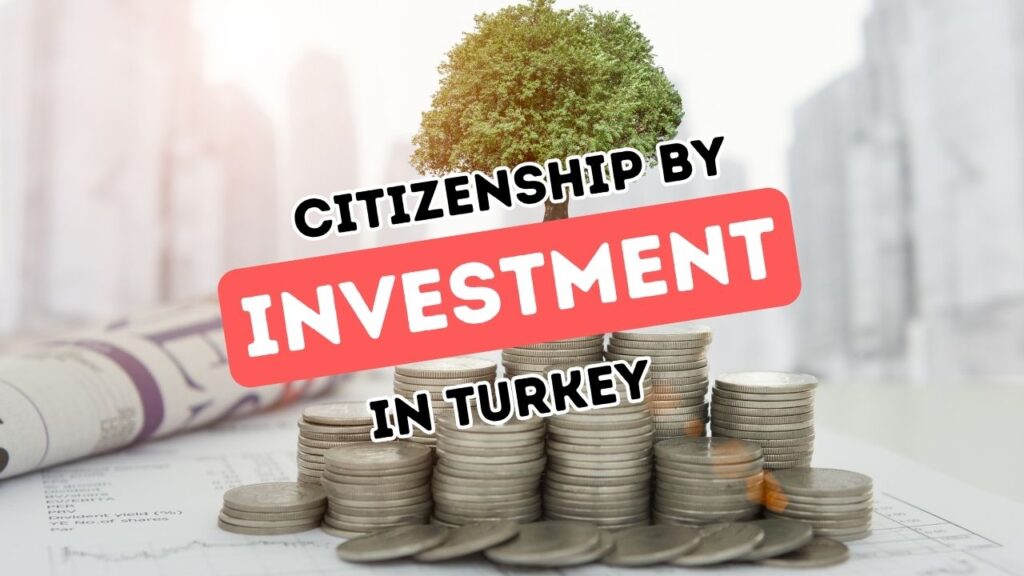Navigating the intricacies of property taxes is a crucial aspect of investing in real estate, especially in a vibrant market like Turkey. At Gordion Partners, we understand that our clients demand clarity and precision when it comes to the financial implications of property ownership abroad. Whether you are a first-time investor or looking to expand your portfolio, understanding Turkish property taxes is essential for making informed decisions. This guide aims to demystify the complexities of property taxation in Turkey, offering valuable insights that will help you efficiently manage your investments while complying with local regulations. Trust Gordion Partners to be your reliable advisor in navigating the Turkish real estate landscape.
Understanding Property Tax Obligations for Foreign Investors in Turkey
For foreign investors, understanding property tax obligations in Turkey is crucial for ensuring compliance and optimizing returns. In Turkey, property taxes include several categories, such as the annual property tax, transfer tax, and value-added tax (VAT) on new properties. The annual property tax, levied by local municipalities, is calculated based on the property’s market value and must be paid in two installments each year. When purchasing property, buyers are also subject to a transfer tax, which is typically 4% of the property’s sale price, split equally between the buyer and seller. Additionally, VAT may apply to certain new properties, depending on their size and type, with rates ranging from 1% to 18%. Being aware of these taxes and their respective rates can help foreign investors effectively manage their budgets and remain compliant with Turkish laws.
It’s essential for foreign investors to take into account the municipal utility charges (such as maintenance and service fees) associated with property ownership in Turkey. These charges are imposed by local municipalities and service providers to cover the costs of essential services like waste management, street cleaning, and infrastructure maintenance. Additionally, investors should be aware of potential increases in property value assessments, which may lead to higher annual property taxes over time. Engaging a knowledgeable advisory firm like Gordion Partners can be invaluable in navigating these variable costs and ensuring that all municipal obligations are met promptly and efficiently. By accounting for these additional expenses, investors can better forecast their overall financial commitments and avoid unexpected liabilities.
In addition to municipal utility charges and other taxes, foreign investors should also be mindful of the tax implications when renting out their property in Turkey. Rental income is subject to income tax, which varies depending on the amount of income earned and is calculated on a progressive scale. Tax rates for rental income can range from 15% to 40%, depending on the total annual rental income. It is crucial to maintain accurate records of all rental transactions and related expenses, such as maintenance and repair costs, as these can be deductible under Turkish tax law. Working with an experienced advisor like Gordion Partners ensures that investors can navigate the intricacies of rental income taxation efficiently, maximizing their returns while staying compliant with local regulations. This comprehensive understanding of property tax obligations will enable investors to make informed decisions and optimize their investments in the Turkish real estate market.
Optimizing Your Tax Strategy: Key Insights for Real Estate Owners
When it comes to optimizing your tax strategy as a real estate owner in Turkey, awareness of the various tax types is paramount. One of the first taxes you’ll encounter is the Property Acquisition Tax, which is a one-time fee payable upon the purchase of the property and is typically calculated at a rate of 4% of the property’s sale price. Additionally, be prepared for the annual Property Tax, which varies depending on the type and location of the property, generally ranging from 0.1% to 0.6% of the property’s appraised value. Understanding these taxes and their implications not only helps in budgeting and financial planning but also ensures compliance with Turkish tax regulations, thereby safeguarding your investment from potential legal complications.
An often-overlooked but essential component of tax strategy is the Value Added Tax (VAT), which can be applicable to property transactions in Turkey. While residential properties under 150 square meters in size might be exempt, others could attract VAT rates typically ranging from 1% to 18%, depending on various factors such as the property type and the status of the seller. For commercial properties, VAT is generally assessed at a standard rate of 18%. Familiarity with VAT regulations is crucial for anticipating additional costs and negotiating terms with sellers. Furthermore, certain exemptions and reductions may be available, particularly for foreign buyers, adding complexity to the tax landscape but also offering potential savings. At Gordion Partners, we ensure our clients are well-informed about these nuances, enabling them to optimize their tax liabilities and streamline their investment processes.
In addition to the aforementioned taxes, capital gains tax is another critical consideration for real estate investors in Turkey. This tax is levied on the profit made from selling a property and the rate varies based on the length of ownership. Properties held for more than five years are generally exempt from capital gains tax, while those sold within five years are subject to a progressive tax rate of 15% to 35% on the gain. Properly timing the sale of a property can therefore result in significant tax savings. Moreover, inheritance and gift taxes may apply if you plan to transfer property to family members, with rates typically ranging from 1% to 30% based on the value of the property and the relationship between the giver and the recipient. At Gordion Partners, we guide you through these intricate tax scenarios, ensuring that each transaction is optimally structured to yield the best financial outcomes, both legally and efficiently.
Navigating Legal Requirements: A Comprehensive Look at Property Taxes in Turkey
Understanding the legal requirements surrounding property taxes in Turkey is critical for ensuring you remain compliant with local laws and avoid any potential penalties. Property tax in Turkey is primarily governed by the Real Estate Tax Law and encompasses several components, such as Real Estate Acquisition Tax, Annual Property Tax, and Value-Added Tax (VAT) on certain transactions. Each type of tax has its unique set of regulations, rates, and deadlines, which can vary depending on factors like property location, type, and usage. By staying informed about these legal stipulations, you can better plan your investment strategy and ensure that all financial obligations are met promptly and accurately. As your trusted advisor, Gordion Partners provides in-depth knowledge and expert guidance to help you seamlessly navigate the legal landscape of property taxation in Turkey.
One of the primary taxes to consider when purchasing property in Turkey is the Real Estate Acquisition Tax. This tax is typically 4% of the property’s declared sale price and is often split equally between the buyer and the seller, although it can be negotiated. Payment of this tax is a prerequisite before the transfer of the title deed at the Land Registry Office. Additionally, it is crucial to ensure that the declared value matches the property’s actual sale price to avoid issues with underreporting, which can lead to hefty fines. At Gordion Partners, we guide you through every step of this process, ensuring that all necessary documentation is in order and that your acquisition complies with Turkish tax regulations.
Besides the Real Estate Acquisition Tax, it’s also essential to factor in the Annual Property Tax, which is payable by the owner each year. This tax varies between 0.1% and 0.6%, depending on the type and location of the property. Urban areas typically have higher rates compared to rural areas. Timely payment of Annual Property Tax is crucial, as delays can result in interest and additional penalties. Another significant consideration is the Value-Added Tax (VAT), applicable in specific circumstances such as the purchase of new properties from developers. The VAT rate can range from 1% to 18%, depending on the property’s characteristics and buyer’s profile. At Gordion Partners, we provide thorough assistance in calculating these taxes accurately and ensuring timely payments, giving you peace of mind and allowing you to focus on enjoying your investment.






